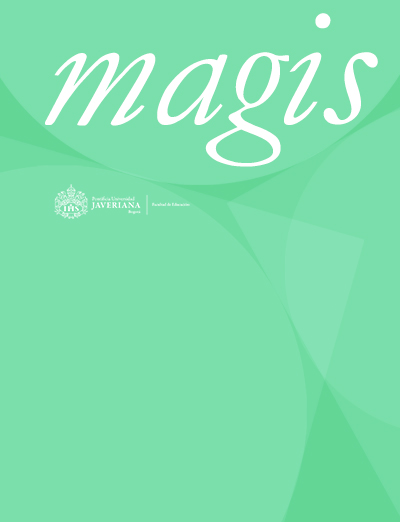Resumen
El propósito del presente estudio fue identificar las características sociales de los estudiantes de pregrado en Ecuador.Se llevaron a cabo varios análisis para este propósito; a saber, análisis descriptivos y multidimensionales.El análisis descriptivo revela las frecuencias y porcentajes de las variables usadas en el estudio.El análisis multidimensional de correspondencias múltiples muestra los criterios de diferenciación y el análisis jerárquico clasifica a los estudiantes sondeados con base en sus características comunes.Los resultados de este estudio revelan las características de los estudiantes actuales de pregrado en Ecuador.
Bonilla Marchán, A. M.; Delgado, R. & Stefos, E. (2017b). The Social Characteristics of Postgraduate Students in Ecuador: A Multidimensional Statistical Analysis. Review of European Studies, 9 (2), 35-44. doi: 10.5539/res.v9n2p35. Available at: http://www.ccsenet.org/journal/index.php/res/article/download/65365/36313
Charvet, Ê. (2010). Feminización estudiantil y masculinización docente en la universidad ecuatoriana. In R. Ramírez (coord.). Transformar la universidad para transformar la sociedad, 125-138. Quito: La Universidad. Available at: http://reneramirez.ec/transformar-la-universidad-para-transformar-la-sociedad/
Cleveland, W. S. (1993). Visualizing Data. Summit, New Jersey: Hobart Press.
Contrato Social por la Educación (2014). Cuadernos del Contrato Social por la Educación, 10. Francisco Cevallos Tejada (ed.). Quito. Available at: http://contratosocialecuador.org/images/publicaciones/cuadermos/10.pdf
Ecuador, Instituto Nacional de Estadística y Censos, INEC (2016). Encuesta Nacional de Empleo, Desempleo y Subempleo, ENEMDU. Quito: INEC. Available at: http://www.ecuadorencifras.gob.ec/documentos/web-inec/EMPLEO/2016/Diciembre-2016/122016_Presentacion_Laboral.pdf
Ecuador (2010). Ley Orgánica de Educación Superior – LOES. Registro Oficial Suplemento 298, 12 de octubre de 2010. Available at: http://www.ces.gob.ec/index.php?option=com_phocadownload&view=category&id=11&Itemid=137
Habley, W.; Bloom, J. & Robbins, S. (2012). Core Components of Student Success. In Increasing Persistence. Research-Based Strategies for College Student Success, Section 3, 99-210. San Francisco: Jossey-Bass.
Housand, A. (2016). Centennials: The World is Waiting! Parenting for High Potential, 5 (2), 6-9. Available at: http://www.nagc.org/sites/default/files/Publication%20PHP/NAGC_PHP_Winter2016_Screen_km.pdf
Kampouropoulou, M.; Fokiali, P.; Efstathiou, I.; Koutris, T. & Stefos, E. (2015). Students' Views on the Use of a Virtual Educational Museum. Review of European Studies, 7 (11), 1-6. doi: 10.5539/res.v7n11p1. Available at: http://www.ccsenet.org/journal/index.php/res/issue/view/1376
Koulianidi, G. & Stefos, E. (2015). Consequences of Dietary Habits and Endocrine Disruptors in School Performance of Children Aged 10-12 in Greece. American Journal of Food Science and Nutrition, 2 (6), 113-120.
Leppel, K. (2012). Similarities and Differences in the College Persistence of Men and Women. The Review of Higher Education, 25 (4), 433-450.
Lowis, M. & Castley, A. (2008). Factors Affecting Student Progression and Achievement: Prediction and Intervention. A Two Year-Study. Innovations in Education and Teaching International, 4 (45), 333-343.
Papapostolou, I. & Stefos, E. (2013). Qualitative Analysis on Pedagogical Research. Methodological Approaches. In I. Papapostolou (ed.). Educational Activities. Teaching Interventions in Secondary Education, 244-251. Rhodes: Evdimos Editions.
Renn, K. & Reason, R. (2013). College Students in the United States: Characteristics, Experiences, and Outcomes. San Francisco, California: Jossey-Bass.
Seidman, A. (2012). College Student Retention: A Formula for Success. Lanham, Maryland: Rowman & Littlefield Publishers.
Stefos, E. (2015). Causes of Death of Indigenous Ecuadorians. International Journal of Clinical Medicine Research, 2 (6), 65-70. Available at: https://pdfs.semanticscholar.org/5af0/364fac38bd93dcf04c703169641d3d09a163.pdf
Stefos, Ε.; Athanasiadis, I.; Gialamas, B. & Tsolakidis, C. (2011). The Use of New Technologies and the Project Method in Teaching Statistics: A Case Study in Higher Education. The Hellenic Mathematical Society, International Journal for Mathematics in Education, HMS i JME, 3 (2010-2011), 84-100. Available at: https://www.puce.edu.ec/sitios/biblioteca/pdf/EfstathiosStefos11.pdf
Stefos, E. & Efstathiou, I. (2013). Quantitative Analysis of the Data of the School of Trianta during the Period of 1906-1916. In I. Papapostolou (ed.). Educational Activities. Teaching Interventions in Secondary Education, 29-57. Rhodes: Evdimos Editions.
Stefos, E. & Koulianidi, G. (2016). Nutrition Data Analysis Using R: Applications in Higher Education. Health Sciences Research, 3 (1), 10-16. Available at: https://www.puce.edu.ec/sitios/biblioteca/pdf/EfstathiosStefos2.pdf
Stefos, E. & Papapostolou, I. (2013). Research Methodology. Processes and Suggestions. In I. Papapostolou (ed.). Educational Activities. Teaching Interventions in Secondary Education, 406-423. Rhodes: Evdimos Editions.
Taylor, J.; Machado, M. de L. & Peterson, M. (2008). Leadership and Strategic Management: Keys to Institutional Priorities and Planning. European Journal of Education, 43 (3), 369-386. Available at: http://citeseerx.ist.psu.edu/viewdoc/download?doi=10.1.1.895.9324&rep=rep1&type=pdf
Witte, J. F. (2009). Vouchers. In G. Sykes, B. Schneider & D. N. Plank (eds.). Handbook of Education Policy Research, 491-501. New York: Routledge.
Wong, P. C. (1999). Visual Data Mining. IEEE Computer Graphics and Applications, 19 (5), 20-21.
La revista magis, Revista Internacional de Investigación en Educación by Pontificia Universidad Javeriana se encuentra registrada bajo la licencia Creative Commons Reconocimiento 4.0 Internacional. Por lo tanto, esta obra se puede reproducir, distribuir y comunicar públicamente en formato digital, siempre que se reconozca el nombre de los autores y a la Pontificia Universidad Javeriana. Se permite citar, adaptar, transformar, autoarchivar, republicar y crear a partir del material, para cualquier finalidad (incluso comercial), siempre que se reconozca adecuadamente la autoría, se proporcione un enlace a la obra original y se indique si se han realizado cambios. La Pontificia Universidad Javeriana no retiene los derechos sobre las obras publicadas y los contenidos son responsabilidad exclusiva de los autores, quienes conservan sus derechos morales, intelectuales, de privacidad y publicidad.
El aval sobre la intervención de la obra (revisión, corrección de estilo, traducción, diagramación) y su posterior divulgación se otorga mediante una licencia de uso y no a través de una cesión de derechos, lo que representa que la revista y la Pontificia Universidad Javeriana se eximen de cualquier responsabilidad que se pueda derivar de una mala práctica ética por parte de los autores. En consecuencia de la protección brindada por la licencia de uso, la revista no se encuentra en la obligación de publicar retractaciones o modificar la información ya publicada, a no ser que la errata surja del proceso de gestión editorial. La publicación de contenidos en esta revista no representa regalías para los contribuyentes.



